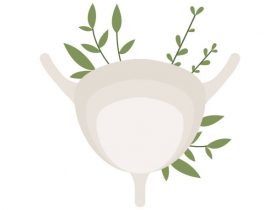What is cystitis?
Overview
Cystitis refers to the inflammation of bladder which can happen due to multiple reasons. Generally, if the bladder gets damaged or irritated by any means, it may become inflamed. Most commonly it is caused by a bacterial infection, that could lead to swelling and pain of bladder. You may feel sensation of bladder fullness even when it is empty, and frequent oozing of urine.
Your bladder gets infected due to a urinary tract infection (UTI) when bacteria enter urethra, multiply in their number, and reach to your bladder. In some cases, naturally occurring bacteria of skin and bowel become imbalanced and begin to infect urinary tract. Cystitis may put your health at risk if the infection spreads to kidneys.
Mostly, it affects women, but men are also not excluded of this risk. People who are sexually active can easily get infected because female genital area harbors the potential bacteria of cystitis.
Cystitis can be mild that wears off on its own in a few days, but severe infection calls for a medical cure. Treatment of cystitis depends upon the underlying cause. However, antibiotic medications are the foremost treatment approach if the bladder is inflamed due to a bacterial infection.
Cystitis most often remains undiagnosed and people don’t pay attention to minor upset of their urine. However, if you are feeling pain and burning sensation during urination and having pain low down your abdomen, seek medical advice immediately. Because treatment at initial stages is easy and may save you from any complication.
Symptoms of cystitis
During cystitis following signs and symptoms can be observed:
- First symptom of cystitis is the frequent desire to urinate that persists even after you’ve emptied your bladder.
- Burning sensation and pain when you pass urine
- Passing dark colored, cloudy urine with strong odor
- Feeling persistent pressure in your abdomen due to bladder fullness
- Small volume of urine
- Mild fever
- Sometimes blood can be seen in urine (hematuria)
Cystitis in young children may be challenging to diagnose, as they may accidentally get wet during daytime. This may be a distress signal of UTI or bladder infection. Keep noticing for other symptoms.
Ignorance to bladder inflammation resulting from a bacterial infection may lead to serious health consequences. This infection may spread to kidneys which are vital organs of your body and it is essential to understand the signs which indicate a kidney infection. These include:
- Nausea and vomiting
- Back pain or in the sides
- Hills and fever
Seek medical assistance immediately if you observe any of the above indications of kidney infection.
Major causes of cystitis
There are two major causes of bladder inflammation:
- Bacterial cystitis– commonly occurs when bacteria from outside attack your urinary tract and reach to your bladder after extensive multiplication in their volume. However, bacteria that exist naturally in your bowel and skin may enter urethra in bulk and reach to your bladder to cause infection.
- Non-infectious cystitis– may develop for several reasons. Few of them are as follows:
- Interstitial cystitis or painful bladder syndromeDrug- stimulated cystitisRadiation cystitisForeign-object cystitisChemical cystitis
- Some physiological complications like diabetes, kidney stones and enlarged prostate may also lead to cystitis.
- Other types include Interstitial cystitis (IC) or Painful Bladder Syndrome (BPS) and Emphysematous cystitis (EC), however it is very rare.
Stereotypically, cystitis occurs when your bladder is harmed and inflamed for any reason. It may lead to serious health complications if it is prolonged and left untreated. In this article, we would further delve into these two major causes of cystitis. So, please read on till the end to become well-informed about endangering effects of this bothersome disease.
References





